TÁR has its premiere in London last night. It was attended by Cate Blanchett, Todd Field, Nina Hoss, Noémie Merlant, Sophie Kauer, Julian Glover, Allan Corduner, and Sylvia Flote. They are currently doing promotional work for TÁR which releases in the UK this Friday and in several countries in the coming weeks. You can check out the photos and interviews below.
Cate has won her 4th Golden Globe Award last Tuesday — she also won Best Actress from Toronto Film Critics Association and San Francisco Bay Area Film Critics Circle. She has been nominated for Outstanding Performance by a Female Actor in a Leading Role at the Screen Actors Guild Awards. This is her 18th nomination overall, and 17th nomination for her works in film.
Climate of Change with Cate Blanchett and Danny Kennedy won Gold Winner for Sustainability & Environment (Shows) at the first Signal Awards which awards some of the best podcasts in the world.
Cate Blanchett is a #GoldenGlobes WINNER for Best Actress in #TÁR. pic.twitter.com/lO3IsAgbQA
— TÁR (@tarmovie) January 11, 2023
Cate Blanchett receives a @SAGawards nomination for Outstanding Performance by a Female Actor in a Leading Role. pic.twitter.com/qgyIwOAEJV
— TÁR (@tarmovie) January 11, 2023
Introducing the 1st annual Signal Award winners ?
? Climate of Change with Cate Blanchett and @dannyksfun from @audible_com
? Gold Winner for Sustainability & Environment (Shows)See all of our inaugural winners at https://t.co/kIhofb7Gue ? pic.twitter.com/cHU4cPH4AY
— Signal Awards (@signalawards) January 10, 2023
TÁR UK Premiere

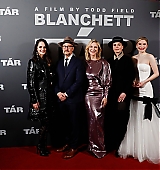

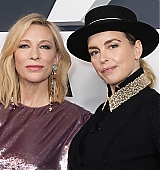


You should already know who she is… Lydia #TÁR is here! Played by the one and only Cate Blanchett ? pic.twitter.com/9lGJOsKBev
— Universal Pictures UK (@universaluk) January 11, 2023
Cate Blanchett has just arrived at the UK premiere of #Tar in London – glittering like all the awards she’s about to bag pic.twitter.com/U6L1oCTyYx
— Cecily Snowball (@CecilySnowball) January 11, 2023
Time's up on the #TÁR premiere!
Book your tickets to experience the film everyone is talking about… in UK cinemas FRIDAY. pic.twitter.com/MMGk5sIlBs
— Universal Pictures UK (@universaluk) January 11, 2023
Cate Blanchett at the #TÁR premiere in London pic.twitter.com/LjG8UF8u9g
— Laura Kramer (@Laura_Kramer) January 11, 2023
GLOBE WINNER BLANCHETT – ‘IT’S FANTASTIC’: Freshly honored Golden Globe winner Cate Blanchett reacts to her best actress in a drama win for “Tár,” as she attends the film’s U.K. premiere in London. pic.twitter.com/F3ZPSEm256
— AP Entertainment (@APEntertainment) January 11, 2023
A day after picking up the best actress #GoldenGlobe award for her performance in 'TAR,' Cate Blanchett attended the film's UK premiere in London pic.twitter.com/JNqzi5dcKt
— Reuters (@Reuters) January 12, 2023
Nina Hoss stars alongside Cate Blanchett in Tar, a psychological drama set in the international world of Western classical music. She spoke to us at the UK premiere last night about what it was like working with Cate Blanchett.#Tar #CateBlanchett pic.twitter.com/5QyPLphSOO
— London Live (@LondonLive) January 12, 2023
Cate Blanchett speaks to @MarthaKearney about her Golden Globes Best Actress win earlier this week.
She is playing a fictional composer and conductor in her new film Tár which is out in cinemas tomorrow.https://t.co/GrnNrJwqO7 | #R4Today pic.twitter.com/xHdvOO5dky
— BBC Radio 4 Today (@BBCr4today) January 12, 2023
Cate Blanchett speaks to @MarthaKearney about her Golden Globes Best Actress win earlier this week.
She is playing a fictional composer and conductor in her new film Tár which is out in cinemas tomorrow.https://t.co/GrnNrJwqO7 | #R4Today pic.twitter.com/xHdvOO5dky
— BBC Radio 4 Today (@BBCr4today) January 12, 2023
Listen to In Tune interview with Cate and Todd Field
Cate Blanchett believes the most powerful thing to say is: ‘I don’t know’
Cate Blanchett, tipped to win an Oscar for her role as a conductor in Tár, talks about power dynamics, turning 50, and women film directors.
When Cate steps into the room, wearing a cream jacket and trousers, white blouse and matching brogues, she exudes an ambassadorial authority. It’s hardly a surprise. The regal-looking Australian, a two-time Oscar winner, has been at the top of her game ever since she starred in Elizabeth in 1998. Imperiously playing Elizabeth I, it set the tone for Blanchett, who has since ticked off all the big hitters – Steven Spielberg, Martin Scorsese, Peter Jackson and, yes, The Simpsons.
Eloquent, smart and ambitious, she wields a lot of power. The question is, how does she use it? ‘With great grace!’ she chuckles. ‘How f***ed up am I? As much as the next person! No! I mean… in certain environments, I’m a white woman who is financially secure, who has gone through primary, secondary and tertiary education, who is in a non-abusive relationship, and who is in work, and who has good health. So, yes, on that level, I am incredibly powerful.’
It turns out to be the day’s topic. In Blanchett’s new film Tár, she plays Lydia Tár, a fictional classical music conductor and the first female in charge of the Berlin Philharmonic. It’s a monstrous performance, one that’s already seen her win best actress at the Venice Film Festival. The bookies make her the favourite for the Oscar.
‘It’s a meditation on power,’ she says. ‘And not just institutional power, but creative power; unequal relationship power; the power of the self versus the power of the group – which is, of course, an orchestra.’
What goes up, though, must come crashing down, as Tár loses her grasp on everything she’s built.
‘She’s about to turn 50, which is an incredible change. You don’t have to be in the film or music industry or an athlete to understand that one sets oneself challenges and you reach a pinnacle.
‘But once you get there, you realise that the next pinnacle is even more difficult and involves going downhill.
‘So I think we find her at a point where she’s at the end of a cycle, and asking herself creatively, “What’s next?”’
Now 53, Blanchett has been there and bought the T-shirt. In the past, she ran the Sydney Theatre Company with her husband Andrew Upton, whom she married in 1997 just before her career exploded and with whom she has ?four children.
‘When my husband and I ran the de facto National Theatre, we knew that when we were creating something, we couldn’t enter the room as the CEOs of the company. We had to enter as a member of an ensemble. So you have to know when and where to use that power.’
Recently, Blanchett has worked behind the camera – as an executive producer on Tár and TV show Stateless. But she’s yet to direct, remaining an interested observer.
‘Sometimes the most creative, powerful thing you can say is, “I don’t know” because people expect answers. When a man says, “I don’t know yet”, you go, “Wow, that’s so interesting. He’s so open to everyone’s opinion!” When a woman says it, you can feel the [crew] going, “God, this is gonna be a long shoot!”’
This is typical Blanchett, whose salty humour stems from her Melbourne upbringing. Her Australian mother was a property developer, her American father – who died of a heart attack when she was ten – an advertising executive.
There was the rebellious teen phase, obviously. ‘I went through a big goth and then punk period – shaved my head,’ she laughs. Then after dropping out of college, she went travelling. Arriving in Egypt, she was asked to be an extra in a film – and never looked back.
Three decades on, Tár gave her the challenge of being in virtually every scene. Does that count for something?
She shakes her head. ‘It’s more about “Do I want to be part of the story?” It doesn’t bother me what sized cog I am.’
W Magazine’s 2023 Best Performances

Lydia Tár is brilliant but remarkably careless about human emotion.
And she has misophonia. That is an acute sensitivity to sound, and it can send people into a deep rage. The sound of air-conditioning would have driven her to distraction.
She also has perfect pitch.
A lot of conductors do. I was speaking to a conductor who I really admire, Simone Young, and she has perfect pitch but with that gift comes the downside that she hears the dog whistle noises that most humans don’t.
Todd Field wrote Tár specifically with you in mind, and he has said that if you had said no to the part he would not have made the film.
Todd sent me this script, and I inhaled it. He wrote it at the beginning of the pandemic. Todd was a musician first, so there was a musical quality to the script, and not just because it’s set in the classical music world. It could just as easily have been about an architect or a painter or a writer—anyone in a position of top institutional power, and the way that being in that position gets in the way of their sense of self and ability to relate to people.
Greatness is often indulged, until it’s not.
In a creative job, you have to be quite brutal with yourself and disciplined. And when, like a conductor, your instrument is a human instrument, how do you maintain that sense of rigor and brutality? It’s a complicated thing.
What sign are you?
It’s tragic—I am Taurus, Taurus, Taurus. I don’t even know what star signs mean, except that I’m a bull times three.



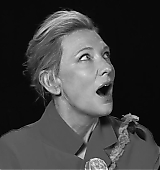
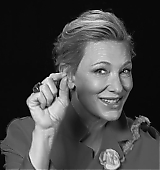
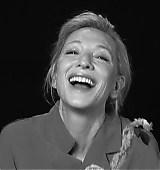
 Welcome to Cate Blanchett Fan, your prime resource for all things Cate Blanchett. Here you'll find all the latest news, pictures and information. You may know the Academy Award Winner from movies such as Elizabeth, Blue Jasmine, Carol, The Aviator, Lord of The Rings, Thor: Ragnarok, among many others. We hope you enjoy your stay and have fun!
Welcome to Cate Blanchett Fan, your prime resource for all things Cate Blanchett. Here you'll find all the latest news, pictures and information. You may know the Academy Award Winner from movies such as Elizabeth, Blue Jasmine, Carol, The Aviator, Lord of The Rings, Thor: Ragnarok, among many others. We hope you enjoy your stay and have fun! 
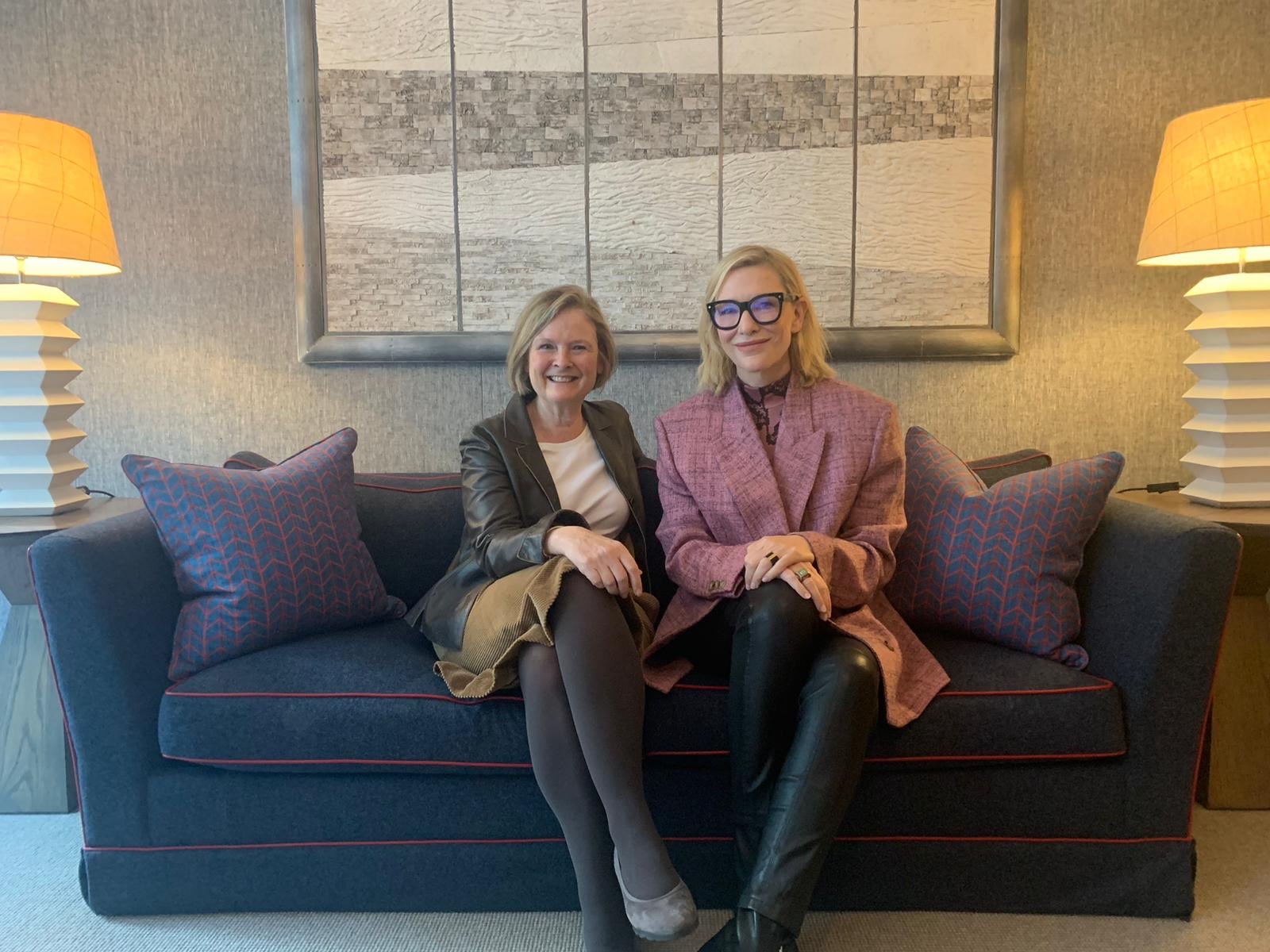
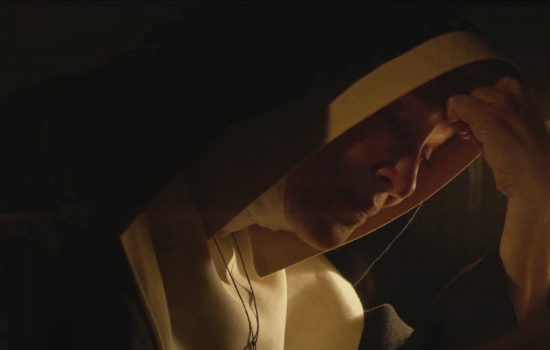
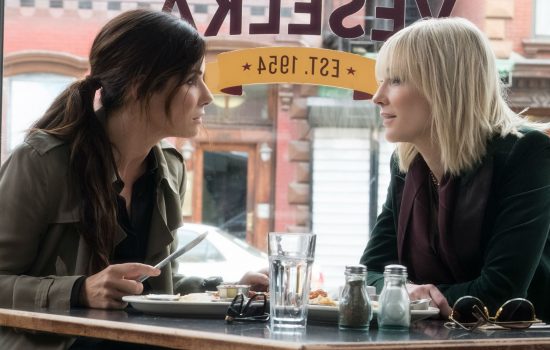

 A Manual for Cleaning Women (202?)
A Manual for Cleaning Women (202?) The Seagull (2025)
The Seagull (2025) Bozo Over Roses (2025)
Bozo Over Roses (2025) Black Bag (2025)
Black Bag (2025)  Father Mother Brother Sister (2025)
Father Mother Brother Sister (2025)  Disclaimer (2024)
Disclaimer (2024)  Rumours (2024)
Rumours (2024)  Borderlands (2024)
Borderlands (2024)  The New Boy (2023)
The New Boy (2023) 











